Inside the Washington shed saving classic cars from scrap
- Published
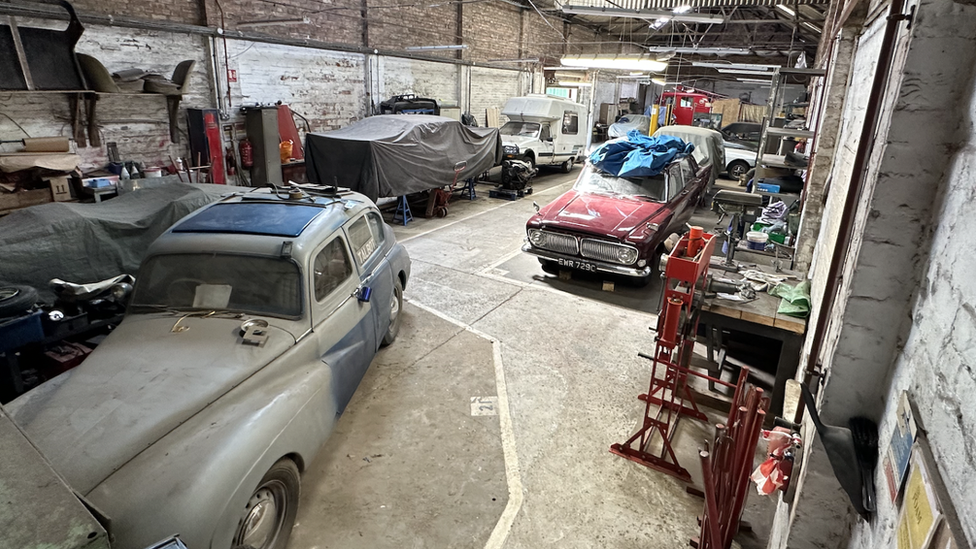
The club has more than 200 members
Behind the door of an anonymous-looking, brick-built warehouse the odour of petrol hangs in the air, exhaust fumes billow and sparks shoot from an old Reliant Kitten.
It is among a collection of vintage cars being brought back to life by members of the North East Restoration Club in Washington, near Sunderland.
Despite its 52-year legacy, the club needs more enthusiasts to keep it going for generations to come. The BBC went to see what is involved.
Based inside the former Blythe Brickworks site since 1973, the more than 100-year-old building has been turned into a workshop.
It exists near railway sidings on the disused Leamside Line, which ran between Gateshead and Tursdale, County Durham, until the 1990s.
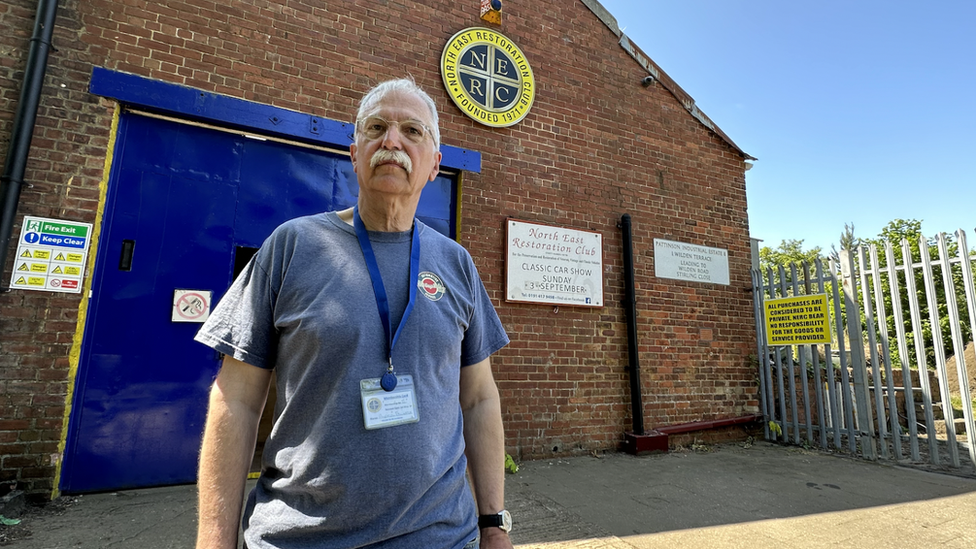
Club secretary Andrew Billington is appealing for new members to come forward
With more than 200 members, North East Restoration Club is believed to be the biggest of its kind in the UK and Europe, according to secretary Andrew Billington.
"The aim is to bring these classic cars back to life," he says.
"If we don't keep some of these cars going, they will disappear."
He is speaking against a backdrop of an old Singer, which has been unwrapped just for me to show its newly clad metalwork.
It has been rebuilt from a shell. Parts often have to be recreated from drawings as many models are no longer manufactured.
Andrew says car predates World War Two and came to the club as a wreck.
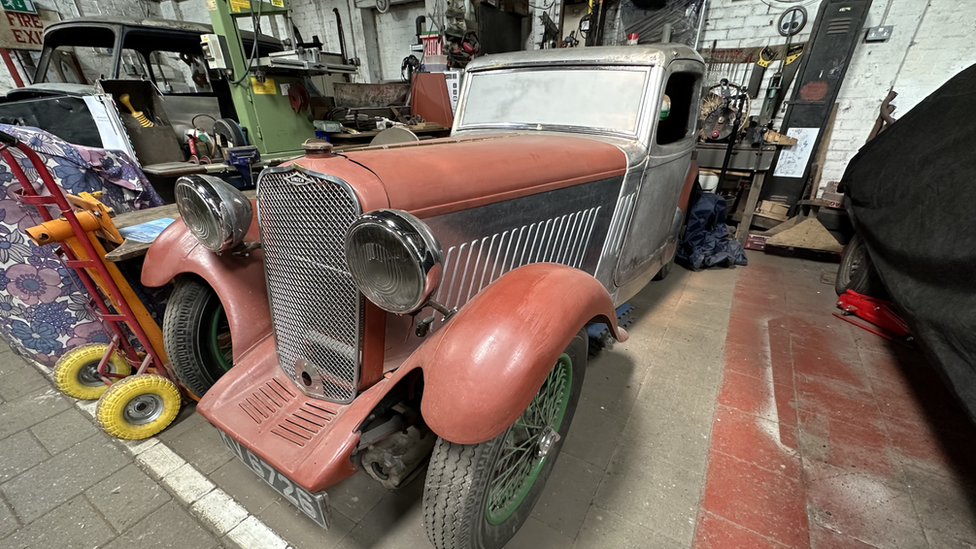
The Singer was built before World War Two
He says: "People said 'surely, you're not going to restore that', but the gentleman who has been working on this has been doing an absolute amazing job".
Vintage Minis, Volkswagens and even a Ford T4 from 1915 are among about 20 vehicles currently receiving some much-needed tender loving care.
Each car is owned by a member, they source them in various conditions from internet sellers, family members and, in some cases, back gardens.
Treasurer and member Michael Scott has been working on a maroon Ford Zepher since September 2021.
"These old cars need to be saved", the 71-year-old from Boldon Colliery says, as he completes one part of the restoration by reinstalling its rear brake drums.
"This one was rescued from a back garden which it had been in for 20 years, it was a case of restoring it or it would go to scrap".
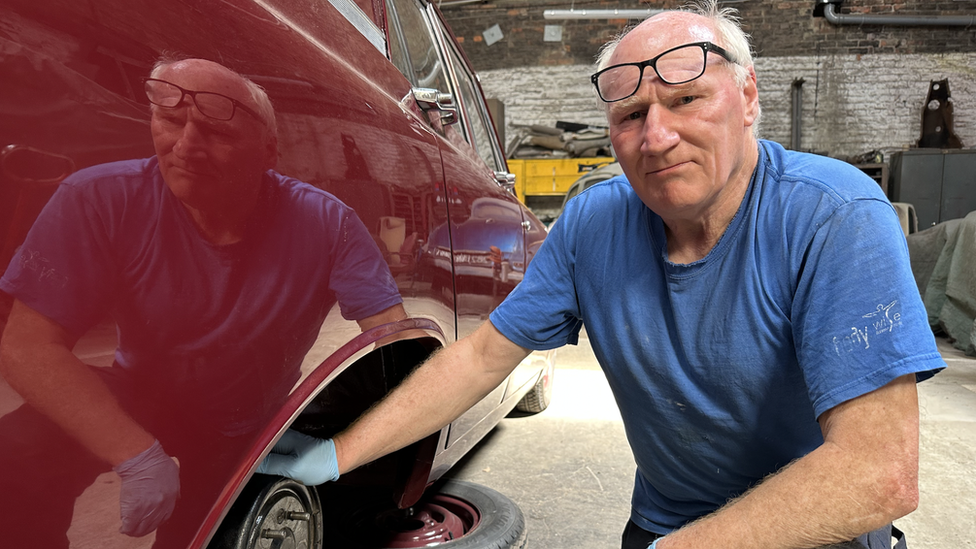
Michael Scott says his vehicle could have ended up being scrapped
There are 21 five-year bays for restoration and five bays for short-term work, leased for £60 a month.
All members pay an annual fee of £50, but this gives them access to bays for smaller jobs, like inspections, oil changes and minor repairs.
That money also helps to pay for the upkeep of the building along with any maintenance, which has proved difficult in recent months, Andrew explains.
The club was recently told to it would need to replace the entire roof, which has sprung several leaks, at an estimated cost of £350,000.
It has already secured funding for temporary patchwork repairs, but it is fundraising some of the amount and applying for a heritage grant.
Andrew says: "With the recent increases in electric costs our costs are doubling and more - it's a balancing act".
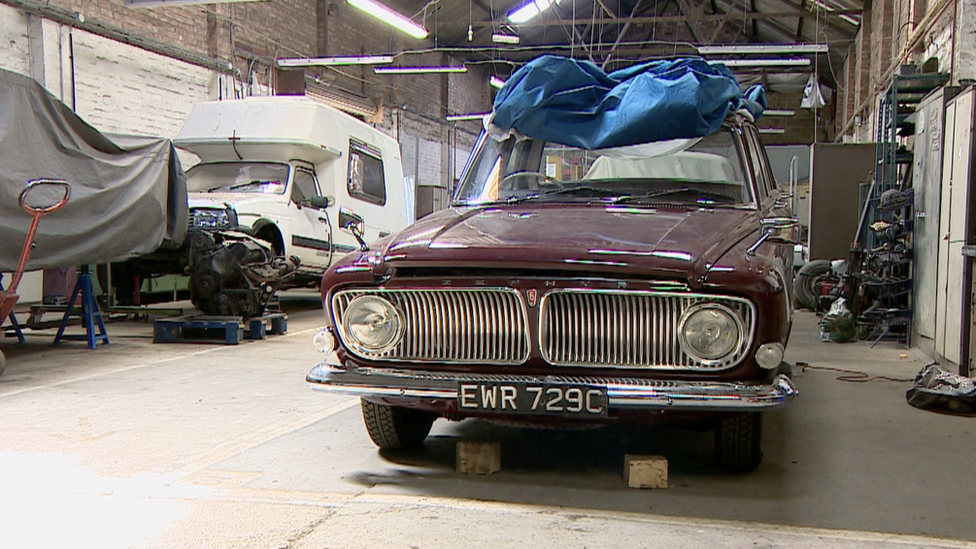
The 1960s Ford Zepher is being restored
Over the years, the club has become a community hub with slot car events, which is similar to Scalextric, car shows and open days.
This has proved useful when trying to get more people interested in restoration and keeping history alive.
"You don't need to be an engineer, we've got people from all walks of life here," Andrew says.
"We've got cooks, woodworkers, doctors and some people have had jobs doing mechanical work".
Andrew says there are members in their 20s right through to their 80s, many are keen to help out, even if they do not have a car to restore.
"[There is] access to a resource of people who have experience, who can show you how to things, help you do things, and if you can't we will work with you do it.
"We're unique in the UK, I am aware of another similar club, but that's in New Zealand which is a little bit far to go."
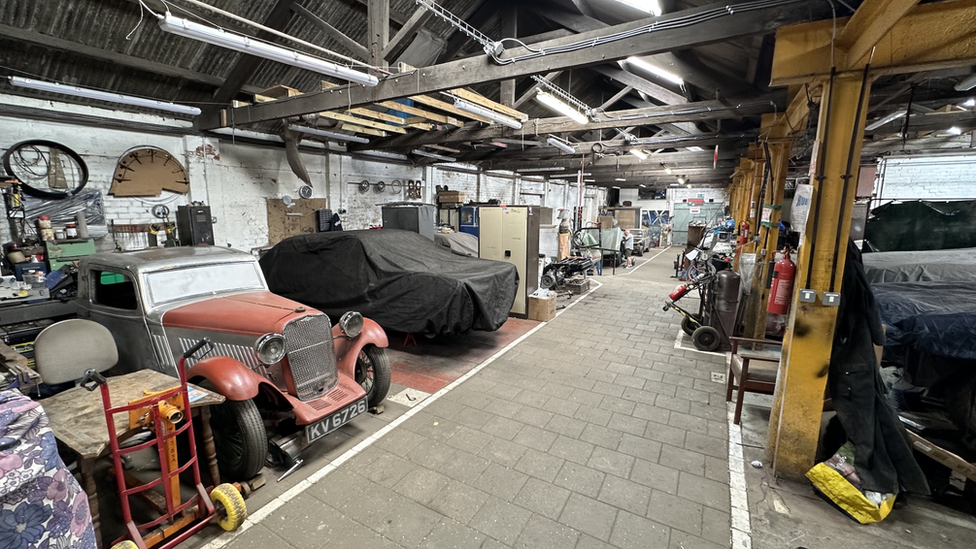
The building is more than 100 years old

Follow BBC North East & Cumbria on Twitter, external, Facebook, external and Instagram, external. Send your story ideas to northeastandcumbria@bbc.co.uk, external.